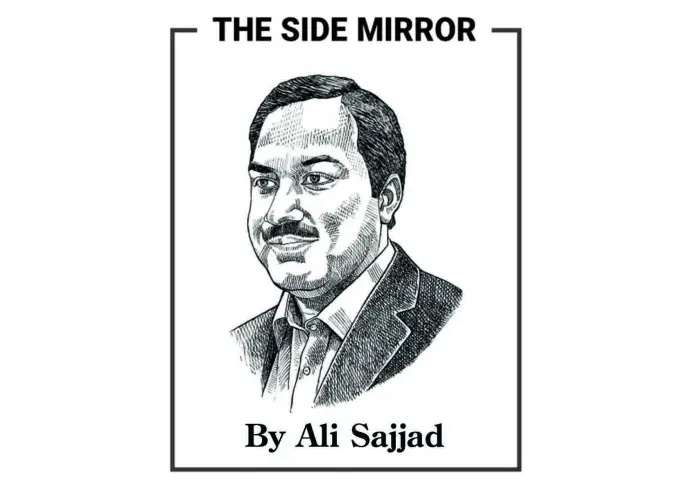Some topics should be treated as a forbidden fruit, better not to be touched.
The line above may be frowned upon among my journalist friends, who think, and all for the right reasons, that there is no subject under the sun which cannot be discussed by the media and the public.
The basic job of the media is to discuss forbidden subjects and break taboos.
I, however, believe that the media should speak truth, and with a noble intent. An old saying says that a truth that is told with bad intent beats all the lies you can invent.
So, the consequences of speaking about a fact matters.
We had better look the other way for sometime when speaking the truth can hurt national causes.
Recently, in a reshuffle of duties, the Inter-Services Public Relations announced replacing the head of the premier security agency of the country with another one. Transfers and postings in the army are as usual as the tide’s shoreline caresses. But this particular development has created a storm, not in a cup of tea, but in the media, and the power corridors.
According to the ISPR’s brief announcement, the incumbent security agency chief was posted to command of the Peshawar Corps. A few days later, when the National Security Council met under the command of the prime minister, the picture and footage of the meeting raised eyebrows of the onlookers and passersby that the newly-appointed spymaster was missing while the supposedly outgoing head was representing the agency. This unleashed an unending discussion, careless and irresponsible, on the media. Ask anyone on any street of the country that who holds the power to appoint the chief spy of the country, and they will educate you that “the power to change the chiefs of such important organizations lies with the prime minister’s office”, and that “no notification has been issued up till now disclosing this change”.
Information Minister Fawad Chaudhry knows very well the sensitivity of the issue. He also knows how to respond to stupid and wise questions. He rose to the occasion when asked about the ongoing controversy at a recent post-cabinet meeting press conference; he revealed that the prime minister and the army chief are and have been on very good terms and therefore, no decision is taken without the consent of both. He said that the prime minister was very well aware of this decision and that both the top men had a detailed meeting on the issue recently. He also said that with the consensus of both authorities, the decision will be made public by the prime minister’s office very soon.
The problem with the controversy is that it may not go well in the international world at a time when the whole world is focused on Afghanistan and Pakistan is dragged into the issue too. At some juncture of history, the media’s job is to fight the fire, not to inflame it. Journalists can wait for an appropriate time to raise the issue.
This time, some would want to create bad blood between the two powerful pillars of the state only for better ratings.
Come on, dear talk show hosts, columnists, Youtubers, and social media activists.
Hold your horses for now, and a better time will come when we will discuss who has the authority to appoint the director general and why in this case, the military’s media wing announced the decision a week prior to when the prime minister and his cabinet were informed.







